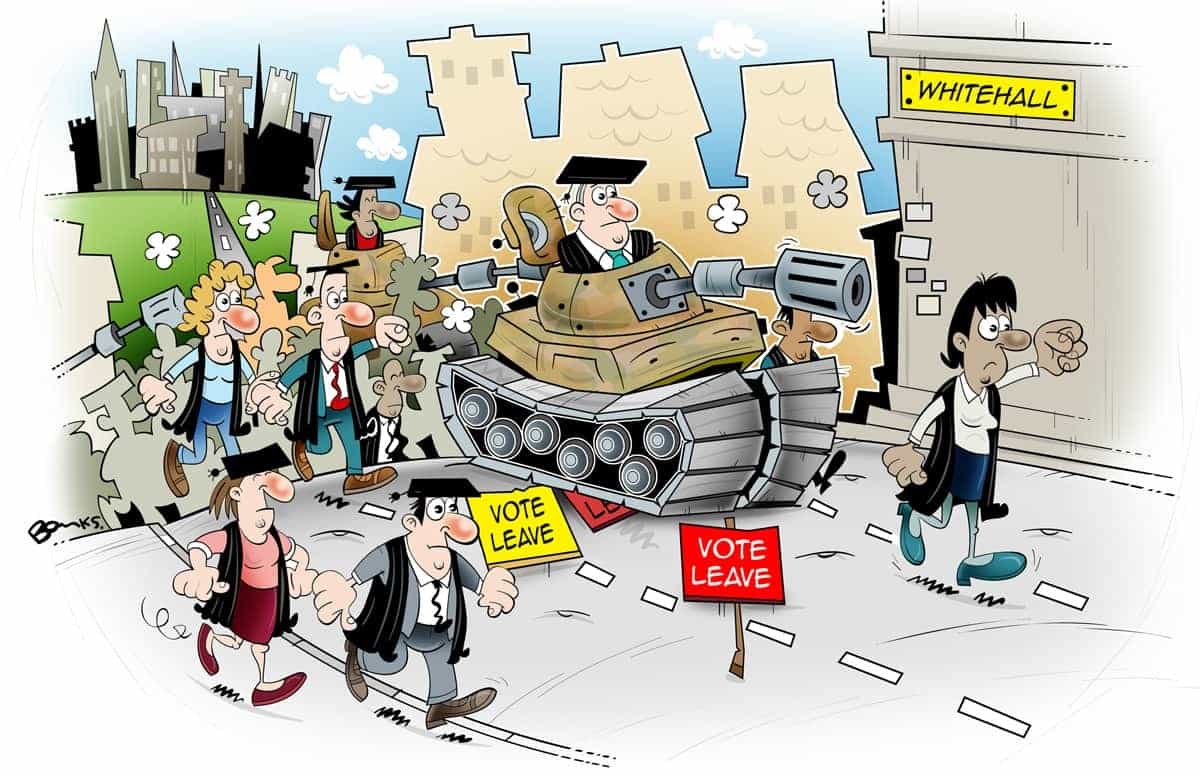
If you want to skip straight to the take-away message, it’s simple: don’t assume that the people you want to talk to, to influence, have any interest in what you have to say. It’s a basic message, but one which has power when it comes to organising a university’s lobbying effort, and it’s a pretty useful shorthand for other circumstances too.
December 2016 saw the first of a series of professional programmes designed and delivered by Wonkhe and Ranmore, a specialist leadership and management consultancy. Working from Church House in the heart of Westminster, our programme – The Inside Track – saw a group of senior leaders from across higher education engage directly with the people, structures and processes of policy-making.
It’s easy to see that engaging with Whitehall is particularly timely. With the Machinery of Government changes from last summer, the HE Bill working its way through the parliamentary process, and the plethora of new policies, consultations and initiatives there was plenty to talk about. But, more importantly, there are longer-term questions to think about. Can we really consider HE as a unified sector? Or should we think of a system of factional interests? How should we understand, and respond to, the trends in policy-making as well as the specific issues?
The fragmentation of ‘the sector’ is a major barrier to effective engagement, but it is something compounded by the policies of marketisation and competition. There are some points where positions align but many more where interests – be they regional, historical, status-driven or disciplinary – make it difficult to find common ground. That may not be, in-and-of-itself, a problem but it further challenges universities to consider how they do their political business, when it’s a joint effort and when it’s a solo mission.

With the prospect of policies increasingly linking higher education with other education systems – further education, schools – there is a moment in which universities should reflect on how they do business in general, and specifically how they approach their political engagement. The obvious political issues of the moment – Brexit, Industrial Strategy, social mobility – should be seen in the context of the wider trends, of increasing control and oversight from the central government departments.
It’s possible to forget, when one sees the headlines, that the individuals doing the work of policy operate in a constrained environment. The challenges, be they political or practical, pose the policy-makers with daily questions of how and when to ‘do’ policy, particularly when the ‘why’ has already been decided. Taking time to build relationships with the doers, to build trust and confidence is essential. But that means playing a long game.
For universities and their leaders, to have influence on matters of policy takes time. It also takes sincerity and humility, qualities which do not always come easily in the academy and within the managerial and intellectual hierarchies of universities. To influence means having something interesting to say, and saying it in a way which is useful to the recipient. Given the real constraints (financial, political, ethical) on designing and delivering policy, that means investing in understanding the position of those doing the work, and refining one’s approach.
Simple really, and worth thinking about.
![inside-track-logo-small-small]() The Inside Track will run in Brussels from 29th – 30th March 2017 and again in London on 8th – 9th November 2017.
The Inside Track will run in Brussels from 29th – 30th March 2017 and again in London on 8th – 9th November 2017.
Find out more here.


 The Inside Track will run in Brussels from 29th – 30th March 2017 and again in London on 8th – 9th November 2017.
The Inside Track will run in Brussels from 29th – 30th March 2017 and again in London on 8th – 9th November 2017.
Well said Ant – at the other end of the clarity spectrum, have you come across Actor–network theory (ANT)? https://en.wikipedia.org/wiki/Actor%E2%80%93network_theory
Very interesting how the process is described for individuals who are interested in sharing information and to be heard. Great information